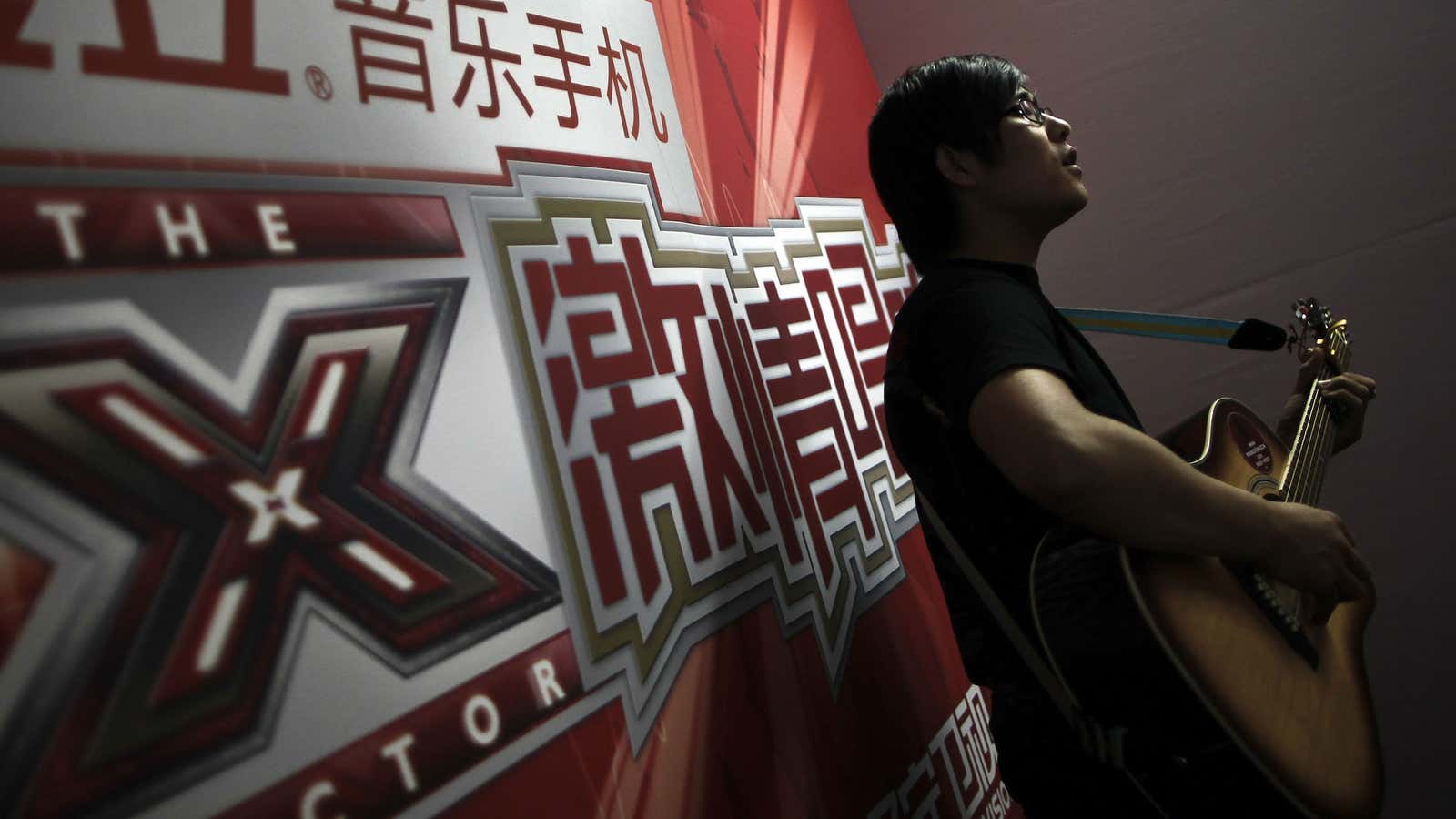This weekend, Chinese media regulators released some disheartening rules for local television stations: Increase “morality-building” shows like documentaries and news and cut back on flashy American Idol-style singing competitions. The former genre, for which China’s state media is known, has been increasingly losing viewers while reality music competitions continue to bring in millions of new fans.
According to the new rules (link in Chinese), these morality-building shows must make up no less than 30% of total programming and stations can only air new music talent shows once every three months. The announcement is the latest attempt by Chinese regulators to clamp down on reality singing contests. In July, officials told stations to postpone airing new series until after the summer and to start abstaining from “extravagance, putting on dazzling packaging and playing up sensational elements” of the programs.
The effort goes even further back. In 2007, talent shows were barred from being shown during prime television hours, between 7:30 p.m. and 10:30 p.m. Again in 2011, regulators tried to restrict the time devoted to singing shows to 90 minutes, twice a week. That year, officials also cancelled a wildly popular show, “Super Girl,” the country’s first iteration of the format and where amateur contestants performed and competed for the votes of audience members. The show had over 400 million viewers.
Why the need to crack down on something as innocent as singing contests? One theory is that authorities are uncomfortable with the amount of populist input the shows promote. Before shutting down “Super Girl” authorities banned voting by text message. (The show was called by some the “largest voting exercise ever conducted in China.”) Today there are about a dozen different singing competitions, many of which follow a similar format of audience input.
The shows may also give a little too much room for public opinion. In March, Chinese viewers booed and voted off a previously popular contestant after he sang communist revolutionary songs, a sign of how much young Chinese dislike patriotic or “red” pledges of allegiance to the party.
Another possibility is that singing competitions are simply the latest form of entertainment that has Chinese viewers choosing local satellite television instead of bland state media programs. Last year, officials took aim at especially popular Korean and Japanese television dramas by limiting the air time of foreign shows. Although China Central Television is still the country’s most watched network, provincial stations like Hunan Satellite Television, Shanghai Dragon Television, or Zhejiang Television, which all have singing shows, are catching up.
